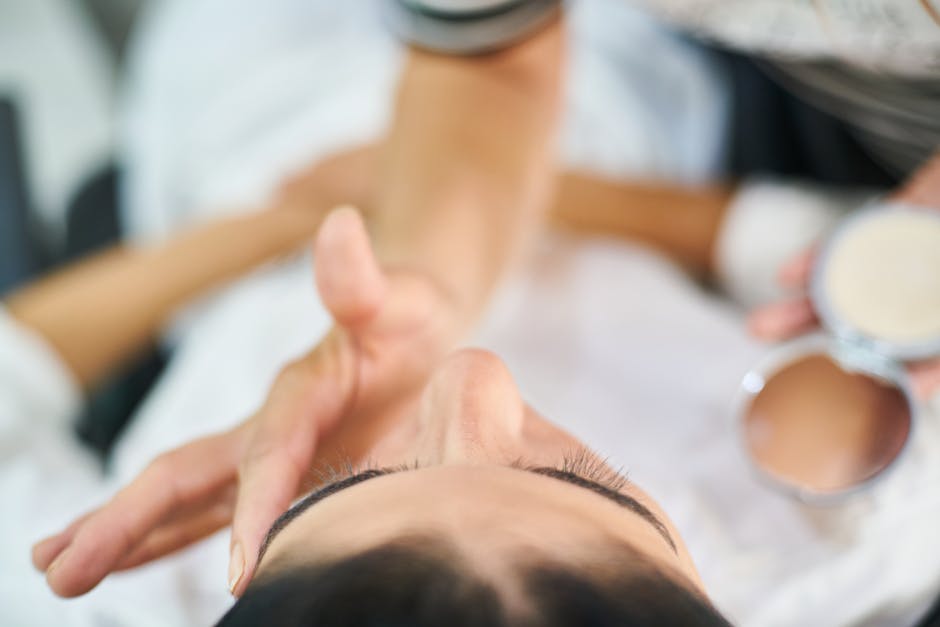Understanding Aesthetic Skin Care Treatments
Aesthetic skin care treatments aim to improve the appearance of your skin. These treatments can help with issues like acne, aging signs, and skin texture. They are not medical procedures, but beauty treatments. Some common aesthetic treatments include facials, chemical peels, microdermabrasion, and laser therapy. Each treatment targets different skin concerns and can help you achieve smoother, clearer, and more radiant skin.
Skin Types and Their Specific Needs
Different skin types have unique needs. Dry skin tends to lack moisture, so it requires hydrating products to keep it soft and supple. Oily skin produces excess oil, making it prone to acne and other blemishes, so it benefits from oil-free products that control shine. Combination skin has areas that are dry and oily, so a balanced skincare routine is essential. Sensitive skin is easily irritated and requires gentle products with soothing ingredients to prevent reactions. Normal skin is well-balanced and requires products that maintain its natural state without causing dryness or excess oiliness. Tailoring your skincare routine to your skin type can help you achieve healthy and radiant skin.
Importance of Tailoring Treatments to Your Skin Type
It is crucial to tailor your skin care treatments to your specific skin type to achieve the best results. Using products and procedures designed for your skin type can address your skin concerns more effectively and prevent any potential skin issues. By understanding your skin type – whether it is oily, dry, combination, or sensitive – you can select the right products and treatments that will work best for you. This personalized approach ensures that you are caring for your skin in the most beneficial way.
Cleansing and Hydrating Treatments
To keep your skin healthy and glowing, regular cleansing and hydrating treatments are essential. Cleansing treatments help remove dirt, oil, and impurities from your skin, preventing breakouts and dullness. Hydrating treatments replenish moisture, keeping your skin soft and supple. Here are some key points to remember about cleansing and hydrating treatments:
- Cleansing treatments clear away dirt and oil, preventing breakouts and dullness.
- Hydrating treatments replenish moisture, keeping your skin soft and supple.
Remember, consistency is key to seeing the best results from your skincare routine.
Exfoliation Techniques for Different Skin Types
Exfoliation helps remove dead skin cells for brighter, smoother skin. Physical exfoliation involves using scrubs or tools to manually exfoliate the skin. This method is suitable for most skin types. Chemical exfoliation uses acids to dissolve dead skin cells, making it ideal for sensitive skin. Enzyme exfoliation uses natural fruit enzymes to gently exfoliate and is great for sensitive or acne-prone skin. Choose the exfoliation method that suits your skin type for best results.
Targeted Treatments for Acne-Prone Skin
If you have acne-prone skin, targeted treatments can help you manage breakouts effectively. Here are some common acne treatments to consider:
- Topical Creams: Over-the-counter or prescription creams containing ingredients like benzoyl peroxide, salicylic acid, or retinoids can help unclog pores and reduce inflammation.
- Facial Cleansers: Using gentle cleansers specifically formulated for acne-prone skin can help remove excess oil and impurities without irritating your skin.
- Spot Treatments: Products with ingredients like tea tree oil or sulfur can target individual blemishes and speed up their healing.
- Professional Treatments: Procedures such as chemical peels, microdermabrasion, or laser therapy can provide more intensive treatment for stubborn acne.
Consulting with a dermatologist can help you determine the most suitable treatment plan for your skin type and severity of acne.
Anti-Aging Treatments for Mature Skin
There are various anti-aging treatments available for mature skin, aiming to reduce wrinkles, age spots, and other signs of aging. Some common treatments include retinoids to improve skin texture, peptides to boost collagen production, and antioxidants to protect the skin from damage. Procedures like microdermabrasion and chemical peels can also help rejuvenate mature skin by exfoliating and stimulating cell turnover. Hyaluronic acid fillers are popular for plumping fine lines and adding volume to the skin. The effectiveness of these treatments may vary depending on individual skin types and concerns, so it’s essential to consult with a dermatologist or skincare specialist to find the most suitable anti-aging regimen for your mature skin.
Brightening Treatments for Dull or Uneven Skin Tone
Brightening treatments are designed to improve dull or uneven skin tones. They work by targeting dark spots, hyperpigmentation, and other skin discolorations to give your skin a more radiant and even look. These treatments can include ingredients like vitamin C, kojic acid, and niacinamide to help brighten the skin and reduce the appearance of dark spots. Some popular brightening treatments include chemical peels, laser treatments, and microdermabrasion.
Soothing Treatments for Sensitive Skin
If you have sensitive skin, opt for calming treatments like facial masks with natural ingredients like aloe vera or cucumber to soothe irritations. Gentle exfoliation using a soft brush or scrub can help maintain smooth skin without causing redness. Look for moisturizers that are fragrance-free and formulated for sensitive skin to keep your skin hydrated and protected. Remember, always do a patch test before trying new products to avoid any adverse reactions.
Customizing a Skin Care Routine for Optimal Results
To get the best results from your skin care routine, it’s essential to customize it according to your skin type. Identifying your skin type is the first step. Once you know if you have oily, dry, combination, or sensitive skin, you can choose products that cater to your specific needs. Tailoring your routine to address your skin concerns, such as acne, aging, or sensitivity, is crucial for optimal results. Consulting a dermatologist can help you create a personalized plan that suits your skin type and concerns. Consistency is key in skincare routines, so stick to your customized plan to see improvements in your skin over time.











